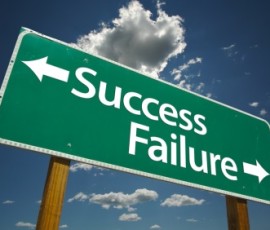Part Two of a Ten Part Series on “The 10 Ways Businesses Get Stuck in Neutral.”
 Today’s business environment is more competitive and challenging than ever before. The recent economic downturn has been the grim reaper for many businesses in the corporate and nonprofit sector.
Today’s business environment is more competitive and challenging than ever before. The recent economic downturn has been the grim reaper for many businesses in the corporate and nonprofit sector.
Yet, the majority of business leaders make costly mistakes that keep them from being able to weather the storm. To ensure the future success and profitability of your organization, make sure you watch out for the 10 common mistakes. Click here to view part 1 of the series.
Mistake #2 – Avoiding Conflict in The Workplace.
 Why can’t we all get along? That’s a question we often hear. We have seldom run into an organization that does not have conflict among its staff. However, most business leaders go to great lengths to minimize or avoid conflict. This creates two problems.
Why can’t we all get along? That’s a question we often hear. We have seldom run into an organization that does not have conflict among its staff. However, most business leaders go to great lengths to minimize or avoid conflict. This creates two problems.
- First, stifling conflict actually increases the likelihood of destructive, back channel sniping.
- Second, it leads to sub-optimal decision-making because the team is not benefiting from the true ideas and perspectives of its members.
Whatever the circumstances, effective business leaders must accept conflict as inevitable in human interaction. As a matter of fact the more conflict the better it is for building an effective team capable of producing extraordinary results for the business.
“Conflicts are inevitable. Arguing is a choice. Conflicts grow out of our uniqueness. The goal of conflict resolution is not to rid ourselves of our differences. The goal is to learn to work together as a team, using differences to make life better for all of us.”
Why do Business Leaders Avoid Conflict?
Business leaders tend to confuse conflict with arguing. What’s the difference you may ask? Gary D. Chapman, PhD, author of Everybody Wins: The Chapman Guide to Solving Conflicts Without Arguing, says “Conflicts are inevitable. Arguing is a choice. Conflicts grow out of our uniqueness. The goal of conflict resolution is not to rid ourselves of our differences. The goal is to learn to work together as a team, using differences to make life better for all of us.” Although Dr. Chapman was writing about conflict in a marriage, his observation (in my opinion) applies equally well in a business setting.
How to Engage in Healthy Conflict
We welcome conflict in the workplace but recommend that you have a process in place to manage it. One of our clients had us help them develop the following four-step process that they used very effectively:
- Define the nature of the conflict;
- Determine the underlying factors of the conflict;
- Identify the stage of the conflict (i.e.; unrest, disagreement, confrontation);
- Have the team choose the most appropriate action to resolve the conflict. After implementation, the results allowed for a more successful and effective business environment.
Once you view conflict as a productive, versus destructive, aspect of human behavior, the dynamics surrounding it can change radically.
Stay tuned for part 3 where I’ll discuss Costly Mistake #3 – Being Oblivious of Your Personal Management Style.
Najera Consulting Group offers Free 1 Hour Strategy Sessions for a limited number of owners of small to medium sized businesses and non-profit executive directors.
Schedule Your Session Today and:
• Gain better clarity of your organization’s vision.
• Uncover hidden challenges and blind spots that could be sabotaging your success
• Leave this session renewed, inspired, and re-energized about your business or non-profit.
Space is Limited. Click here to contact us with the subject line, “Free Strategy Session” or call: 630-326-3238
 About the Author:
About the Author:
Gabriel Najera is the president & founder of the Najera Consulting Group. Gabriel is a frequent speaker to organizations. And, is a highly sought after advisor to corporate and nonprofit executives looking to develop a strategic thinking mindset.
Gabriel is the author of the forthcoming book, Lessons From the Field: From Farmworker to Fortune 500 Consultant. Gabriel is available to speak to your organization. To inquire about scheduling Gabriel for an upcoming speaking engagement or to inquire about our consulting services, please click on this link.















Oh how true is this! I haven’t experienced conflict like this in the workplace but my partner has, and the reason being was because all the managers would do was stifle it. They would make it go away as quickly as possible by either ignoring it, or creating temporary solutions that they knew someone else would have to pick up in a few weeks time. This was not a healthy working environment and it created a TON of stress on the workers, stress with themselves, with the managers and especially with other co-workers. It ended up being like a high school, where you’d go in there’d be gossip and miscommunication. The process you mentioned was only executed by managers and the employees were not an active part of the discussion. This has lead to an extreme high turnover rate at that business.
I would surmise that ‘Trust’ among your work-team is the reason you have not experienced conflict like that of your partner’s workplace. When there is trust in the workplace, individuals are more likely to engage in healthy conflict. Thanks for sharing!